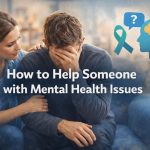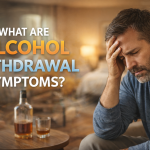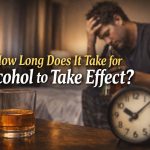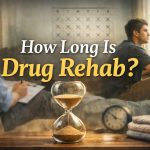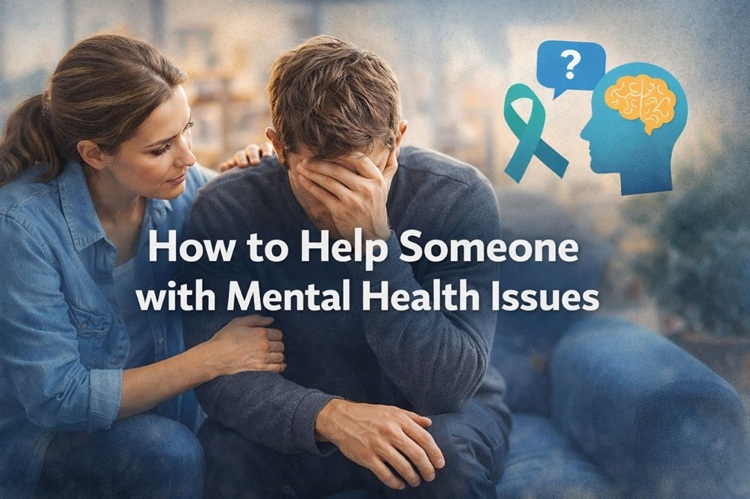Mental health issues affect millions globally and have far-reaching implications that extend beyond individual well-being. A significant arena where mental health is intricately intertwined is in the realm of crime rates.
Multiple studies have underscored a substantial correlation between mental health disorders and criminal behavior, advocating for a holistic approach that integrates mental health treatment and crime prevention strategies.

These conditions—ranging from depression, anxiety, and bipolar disorder, to schizophrenia—can profoundly impact an individual’s behavior, impairing judgment, impulse control, and empathy, thus elevating the risk of engaging in criminal activities.
Research has consistently highlighted a higher prevalence of mental health disorders among individuals involved in criminal behavior. The National Institute of Mental Health’s study revealed that approximately 50% of those within the criminal justice system had a diagnosable mental health condition.
Similarly, the World Health Organization’s findings indicated that individuals grappling with mental health disorders are not only more susceptible to being victims of violence but are also disproportionately represented in prison populations.
This intricate relationship between mental health and crime isn’t simplistic; instead, it’s multifaceted. Factors like substance abuse, poverty, homelessness, and inadequate access to mental health care further complicate this correlation.
For instance, untreated mental health disorders can potentially drive individuals toward substance abuse as a coping mechanism, heightening the likelihood of engaging in criminal activities.
Addressing this complex intersection between mental health and crime necessitates a comprehensive strategy. It involves providing comprehensive mental health care services encompassing therapy, medication, and robust support networks, empowering individuals to manage their conditions and mitigate the risks associated with criminal behaviors.
Furthermore, crime prevention efforts should target the underlying factors contributing to mental health issues and criminal behavior. Initiatives focusing on poverty reduction, enhancing educational and employment opportunities, and establishing robust social support networks are essential in creating an environment conducive to mental well-being and curbing criminal activities.
Understanding the Prevalence of Mental Health Disorders
Before delving into the connection between mental health and crime rates, acknowledging the prevalence of mental health disorders in society is crucial. The World Health Organization (WHO) reports that about one in four individuals will encounter a mental health issue at some juncture in their lives. These disorders are prevalent across all demographics, impacting individuals from diverse backgrounds.
The Correlation Between Mental Health and Crime Rates
Numerous studies consistently underscore a strong link between mental health disorders and criminal behavior. Research published in the British Journal of Psychiatry emphasizes that individuals with mental health disorders exhibit a significantly higher likelihood of engaging in criminal activities compared to those without such conditions. Notably, the risk of committing violent crimes is amplified among individuals grappling with severe mental health disorders.
The Vital Role of Mental Health Treatment
Addressing mental health disorders is not only pivotal for individual well-being but also imperative for crime prevention. Effective mental health treatment significantly diminishes the probability of criminal behavior among individuals with mental health issues. Offering appropriate interventions such as therapy, medication, and robust social support enables individuals to better manage their symptoms, consequently reducing the propensity for engaging in criminal activities.
The Significance of Prevention and Rehabilitation
Preventive measures play a pivotal role in mitigating the connection between mental health disorders and crime rates. Early identification and intervention for individuals at risk of developing mental health disorders can considerably lower the likelihood of criminal behavior. Heightened awareness, education, and accessible mental health services in educational institutions, workplaces, and communities are crucial to achieving this goal.
In Conclusion
The correlation between mental health and crime rates constitutes a multifaceted challenge demanding a comprehensive approach. Mental health disorders significantly contribute to the increased risk of engaging in criminal behavior, underscoring the urgent need for integrated mental health treatment and crime prevention strategies.
By addressing mental health concerns early on, providing robust support and rehabilitation, and challenging societal stigmas, we can strive to diminish crime rates and uplift the well-being of individuals grappling with mental health disorders.
Palm Coast Treatment Solutions is a mental health treatment center in Palm Coast, Florida. We provide a variety of evidence-based treatment services for a variety of mental health conditions, including depression, anxiety, and PTSD. We are committed to helping our patients recover from their mental health conditions and live full and productive lives.
If you or someone you know is struggling with a mental health condition, please reach out to Palm Coast Treatment Solutions today. We offer a free consultation so that you can learn more about our services and see if we are a good fit for you.
Call us today at (386) 284-4151 to schedule a consultation.
We look forward to helping you on your journey to recovery.







